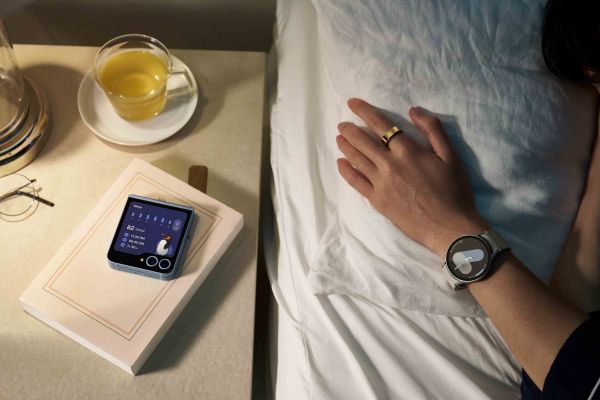Mental health impacts nearly every aspect of our daily lives, from our physical health to our relationships with friends, family and communities, as well as productivity at work and beyond. Despite the critical role mental health plays in overall well-being, the majority of available technologies are centered around physical health.
Samsung is committed to fostering innovative health solutions for both today and tomorrow, which is why we frequently collaborate with leading medical institutions and universities to leverage advanced technologies and explore new possibilities in health and wellness.
In support of World Mental Health Day, Samsung is highlighting ongoing research programs with Massachusetts General Hospital, MIT Media Lab, Brigham & Women’s Hospital and Tulane University School of Medicine, Heart and Vascular Institute. These studies dive deep into the mind-body connection by examining various health indicators, including depression, mood, resilience and even cardiovascular diseases, to deliver more comprehensive and preventative health solutions for all.
Enabling Depression Prevention & Detection with Massachusetts General Hospital
Massachusetts General Hospital (MGH) has been analyzing the correlation between depression and various biomarkers by evaluating the health metrics of 150 participants with different levels of depression, using Galaxy Watch. The study aims to validate the correlations between depression and biometrics, such as participants’ patterns of biometric data, activity level, sleep stage, duration and latency on both weekends and weekdays, to identify more detailed characteristics. The findings will be used to introduce a mental health index, allowing users to better understand their mental state and take proactive measures
Supporting Well-Being through Better Sleep with MIT Media Lab
MIT Media Lab has expanded the understanding of sleep’s role in well-being by linking sleep patterns to overall health. Approximately 200 college students participated in the study, tracking their sleep over the course of a month and self-evaluating across five well-being indicators every morning, including — alertness, happiness, energy, health and calmness. The study found strong associations between sleep and well-being, with both sleep duration and sleep regularity directly affecting them. Moreover, utilizing a mixed-effect random forest (MERF) model, MIT Media Lab was able to predict the participants’ self-reported well-being based on their sleep patterns with mean absolute error of 11-15 points on a 100-point scale, which closely matched their self-evaluation results. This outcome highlights the link between sleep and well-being, as well as the possibility of personalized well-being assessment and management through the analysis of sleep patterns.
Helping Rapid Recovery with Brigham & Women’s Hospital
Brigham & Women’s Hospital (BWH) is studying the relationship between biomarkers and an individual’s resilience, or how quickly one recovers from major stressors. As a holistic measure, resilience captures both the capacity of the body and the mind to withstand major events such as disease and surgery.
As a first use case, they are monitoring patients before, during and after undergoing transcatheter aortic valve replacement (TAVR) surgery. Galaxy Watch tracks participants’ lifestyle patterns and health conditions in real time while the data is automatically collected and analyzed using the Samsung Health Research Stack, a system designed to increase the efficiency and accuracy of large-scale research. This study aims to uncover insights into recovery and ability to withstand stressors, not only to help inform from medical decisions, but also help individuals understand how they can be prepared in both mind and body for any challenges that may come.
Identifying Cardiovascular Risks with Tulane University School of Medicine
Mental health has a well-established relationship with reduced risk of future cardiovascular disease. Tulane University School of Medicine is utilizing data from the Galaxy Watch and Samsung Health SDK to create biomarkers for early detection of cardiovascular disease risk factors. The study will closely monitor thousands of participants from diverse demographics and areas of high prevalence of cardiovascular diseases and risk factors for up to three years. The participants’ health records and biometric data will then be analyzed to examine complex and interconnected health factors. Samsung and Tulane’s Heart and Vascular Institute hope to identify factors that impact cardiovascular disease, with a goal of developing algorithms for individual cardiovascular disease prediction and prevention.
“At Samsung, we are committed to supporting the health community by unlocking new frontiers that were previously impossible to explore,” said Dr. Hon Pak, Senior Vice President and Head of Digital Health Team, MX Business at Samsung Electronics. “That’s why we collaborate with leading medical institutions and accelerate research focused on the mind-body connection, leveraging our sensor technology and combined expertise to deliver truly holistic and preventative health solutions.”
Source: Peacefmonline.com
| Disclaimer: Opinions expressed here are those of the writers and do not reflect those of Peacefmonline.com. Peacefmonline.com accepts no responsibility legal or otherwise for their accuracy of content. Please report any inappropriate content to us, and we will evaluate it as a matter of priority. |
Featured Video






 Ghana is the largest producer of beads in Africa
Ghana is the largest producer of beads in Africa












